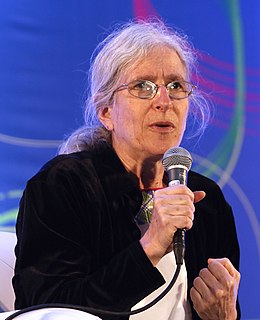A Quote by Heather Brooke
Britain's legal structure is basically the same as in feudal times: laws are written for the elite.
Related Quotes
Not only the financial power, but also the legal power, has remained seated in Britain. The Washington Post commented on June 18, 1983 that after the American Revolution, all the old laws remained in effect in the new United States: Some of these laws of "English common law" dated back to 1278, long before America was discovered.
Feudalism is an economic system where a few people own all the land and the others have no option but to be serfs on such a feudal estate. We now condemn feudalism. We condemn not merely the feudal lords but we condemn the whole structure of rules that sustained feudalism. I am asking people to think similarly about the world economy.
Many people say that we have sufficient laws in our country, just that they are not implemented properly. I completely disagree with them. I have studied many of the laws very carefully. We are still being governed by the same colonial laws which existed in British times. They have not been changed. Many of these laws need to be changed.
People who write about issues like poverty or terrorism are a part of the elite, and the distance between the elite and nonelite is growing very fast. You can move around the world but meet only people who speak your language, who share the same ideas, the same beliefs, and in doing so you can lose sight of the fact that the vast majority of the world does not think or believe in or speak the everyday discourse of the elite.
Like other discriminatory legislation in our country's history, immigration laws define and differentiate legal status on the basis of arbitrary attributes. Immigration laws create unequal rights. People who break immigration laws don't cause harm or even potential harm (unlike, for example, drunk driving, which creates the potential for harm even if no accident occurs). Rather, people who break immigration laws do things that are perfectly legal for others, but denied to them--like crossing a border or, even more commonly, simply exist.
As the Nazi regime developed over the years, the whole structure of decision-making was changed. At first there were laws. Then there were decrees implementing laws. Then a law was made saying, ‘There shall be no laws.’ Then there were orders and directives that were written down, but still published in ministerial gazettes. Then there was government by announcement; orders appeared in newspapers. Then there were the quiet orders, the orders that were not published, that were within the bureaucracy, that were oral. And finally, there were no orders at all. Everybody knew what he had to do.
Embedded in 'The New York Times' institutional perspective and reporting methodologies are all sorts of quite debatable and subjective political and cultural assumptions about the world. And with some noble exceptions, 'The Times,' by design or otherwise, has long served the interests of the same set of elite and powerful factions.

































